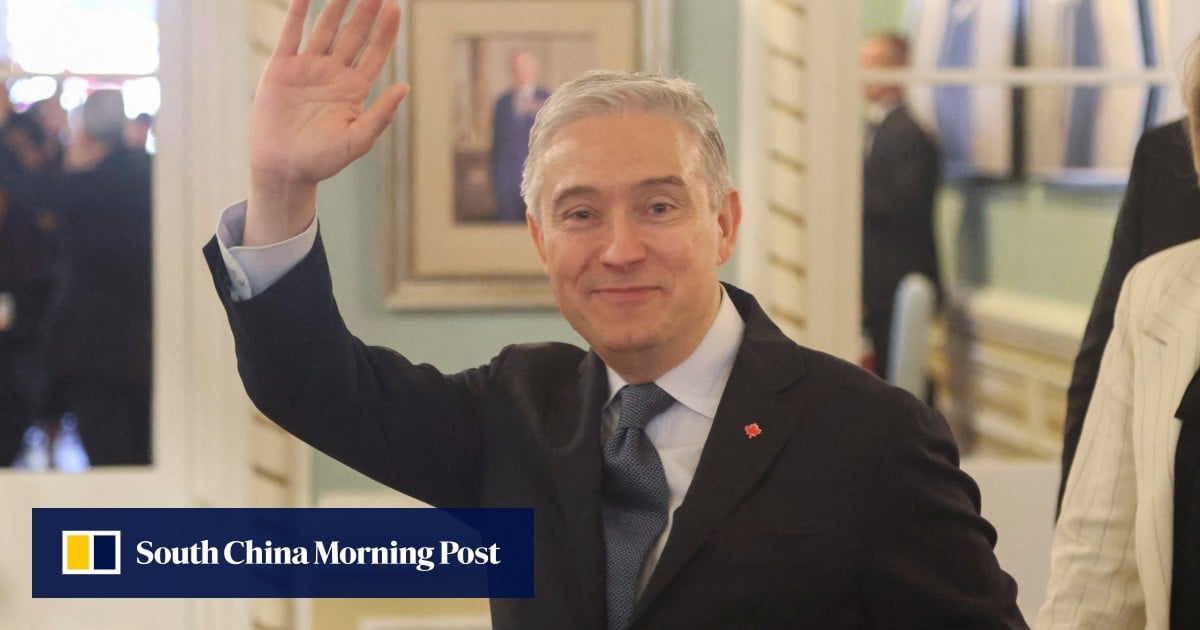G7 Finance Chiefs Navigate Trade Tensions, Seek Path Forward Amid Tariff Concerns

G7 Finance Leaders Strive for Unity Amidst Trade Uncertainties
The picturesque Canadian Rocky Mountains served as the backdrop for a crucial meeting of G7 finance leaders this week, where the primary focus was navigating the increasingly complex landscape of international trade. With tensions surrounding U.S. tariffs – particularly those imposed by President Donald Trump – looming large, delegates worked diligently to downplay disputes and forge a consensus that would ensure the continued relevance and effectiveness of the G7 forum.
The meeting took place against a backdrop of growing global economic uncertainty. Concerns about a potential slowdown in global growth, fueled by trade wars and geopolitical instability, were palpable. The G7, comprised of Canada, France, Germany, Italy, Japan, the United Kingdom, and the United States, has historically played a vital role in coordinating economic policy and addressing global challenges. However, recent disagreements, particularly regarding trade policy, have put strain on the group's unity.
Addressing the Tariff Elephant in the Room
The elephant in the room, of course, was President Trump’s tariff policies. While a direct confrontation was avoided, the issue of tariffs and their potential impact on the global economy was a central theme throughout the discussions. Finance ministers and central bankers engaged in delicate negotiations, seeking to find common ground and mitigating the risk of escalating trade wars. Sources indicated a willingness to acknowledge the concerns surrounding protectionist measures while emphasizing the importance of free and fair trade.
Finding Common Ground: Key Areas of Agreement
Despite the challenges, the G7 finance leaders did manage to identify and agree on several key areas. These included:
- Supporting Global Economic Growth: A shared commitment to policies that foster sustainable and inclusive economic growth was reaffirmed. This includes promoting investment, innovation, and productivity.
- Addressing Income Inequality: Recognizing the growing gap between the rich and the poor, the G7 pledged to pursue policies that reduce income inequality and provide opportunities for all.
- Strengthening Financial Stability: The leaders emphasized the importance of maintaining a stable and resilient global financial system, particularly in the face of potential shocks.
- Tackling Climate Change: The G7 reaffirmed its commitment to the Paris Agreement and pledged to work together to address the challenges of climate change.
The Road Ahead: Challenges and Opportunities
While the meeting ended with a sense of cautious optimism, significant challenges remain. The future of international trade relations remains uncertain, and the potential for further trade disputes is real. However, the G7’s ability to find common ground on key economic issues demonstrates its continued importance as a forum for global cooperation. The success of the G7 will depend on its ability to adapt to the changing global landscape and to address the concerns of its member nations in a constructive and collaborative manner. The ongoing discussions signal a desire to maintain stability and collaboration in an increasingly volatile world.
The next steps will involve continued dialogue and cooperation among the G7 members, as well as with other international partners. The goal is to create a more predictable and stable global economic environment that benefits all.





